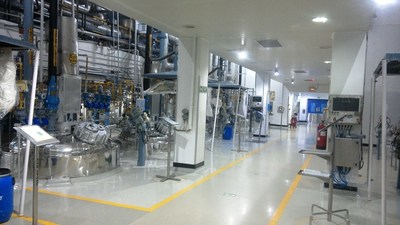
Piramal progresses two API sites
Submitted by:
Andrew Warmington
Piramal Pharma Solutions (PPS) has announced the implementation of “various tools to unlock API manufacturing capacity and support client needs in drug development and on-patent projects” at its 40-hectare site at Digwal in the Indian state of Telangana. This came shortly after its new API plant at Aurora, Ontario, came online.
The investment at Digwal is based on applying operational excellence (OE) tools, such as theory of constraint, value stream mapping, optimisation of unit operations and line balancing. In all, this has released 20% of capacity at the site, where PPS has made or committed over $30 million in capital investments, both in the infrastructure and the operational culture.
In addition, to reduce manual interventions, mechanisation initiatives are in progress at the site, including investments in powder transfer systems, and a zero liquid discharge system has been implemented. Digwal is also moving away from paper records to electronic batch records. Ongoing additions include a revamped QC lab and a new, centralised warehouse for finished goods that features a warehouse management system.
Having previously added development services for late-phase clinical requirements, registration and site transfers to support the commercial launch, PPS has added to R&D capabilities at Digwal, with some 20 new fume hoods coming online. “As a result, the site has recently partnered with clients on more than a dozen programmes, including several which have been commercially launched and others that are under registration with the regulator,” the company said.
The Aurora plant came online in May after completing its initial production runs. These have included process validation, registration and engineering campaigns. The new plant, built as part of a C$30 million capital investment at Aurora, has around 900 m2 of manufacturing space and includes two suites with glass-lined reactors of 2-4 m3 capacity, plus additional filtration and drying capabilities. It also expands the company’s ability to produce clinical- to commercial-scale APIs and HPAPIs requiring an occupational exposure limit of 1 ug/m3.
“We’ve achieved our objectives of strengthening our presence in Canada, adding API development and commercial support for other geographies such as North America and Europe, and supporting market demand for integrated solutions,” said CEO Peter DeYoung.
